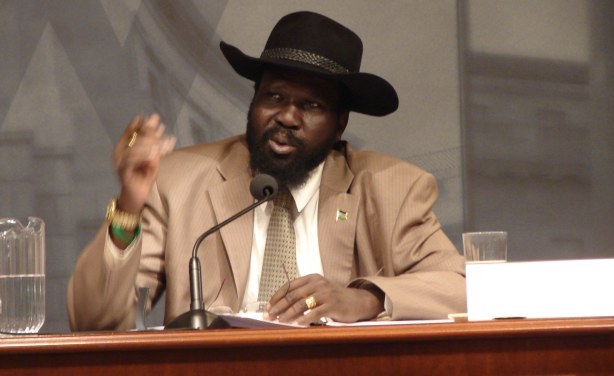"We should discuss this with the Ministry of Justice...."
"We should discuss this with the Ministry of Justice...."
"What Ministry of Justice?"

Three days ago, the President of South Sudan, Salva Kiir, decided to fire--well--everyone, including the vice president, his entire cabinet, and the ruling party(SPLM)'s secretary general. A decision which, I might point out, was entirely unconstitutional. Nevertheless, it is slightly disconcerting to wake up and discover that the government of the country for whom you are working has been dissolved. Thankfully, all IDLO members stationed in Juba are doing fine, and the city seems to have resumed its normal level of security, despite a slight skirmish yesterday.
Although BBC and the New York Times view President Kiir's decision as purely political and the manifestation of a power struggle between himself and his vice president (who allegedly insinuated that he might run against the president in the 2015 elections), this mass dismissal may ultimately have a positive impact on the country.
Before the dissolution of the government, there were 28 ministries; now it seems that when (if) ministers are re-hired, there will only be 18 ministries, which, for a small country already struggling with governance infrastructure, may be a good thing.
Daniel Awet, Deputy Speaker of the National Legislative Assembly, supports the President's actions: "The parliament will definitely stand by the decision of the president because this is a response to the public call to reduce the size of the current government so that it can effectively manage the current economic situation."
Presently, under-secretaries are carrying out the functions of those ministers who have been dismissed, many of whom comprised the 75 senior officials who stole over $4 billion from the government of South Sudan last year. In addition, another one of the members sacked, Secretary General Pagan Amun, was the primary negotiators for peace talks with Sudan, especially with regards to the lucrative oil exportation business that sustains the economy of both countries.
In other news, it would appear that the people of South Sudan support government transparency in handling conflicts over oil in the resource-rich territory to the north, and have begun seeking foreign investors to take advantage of another natural commodity they hold in abundance: gold. Any takers?